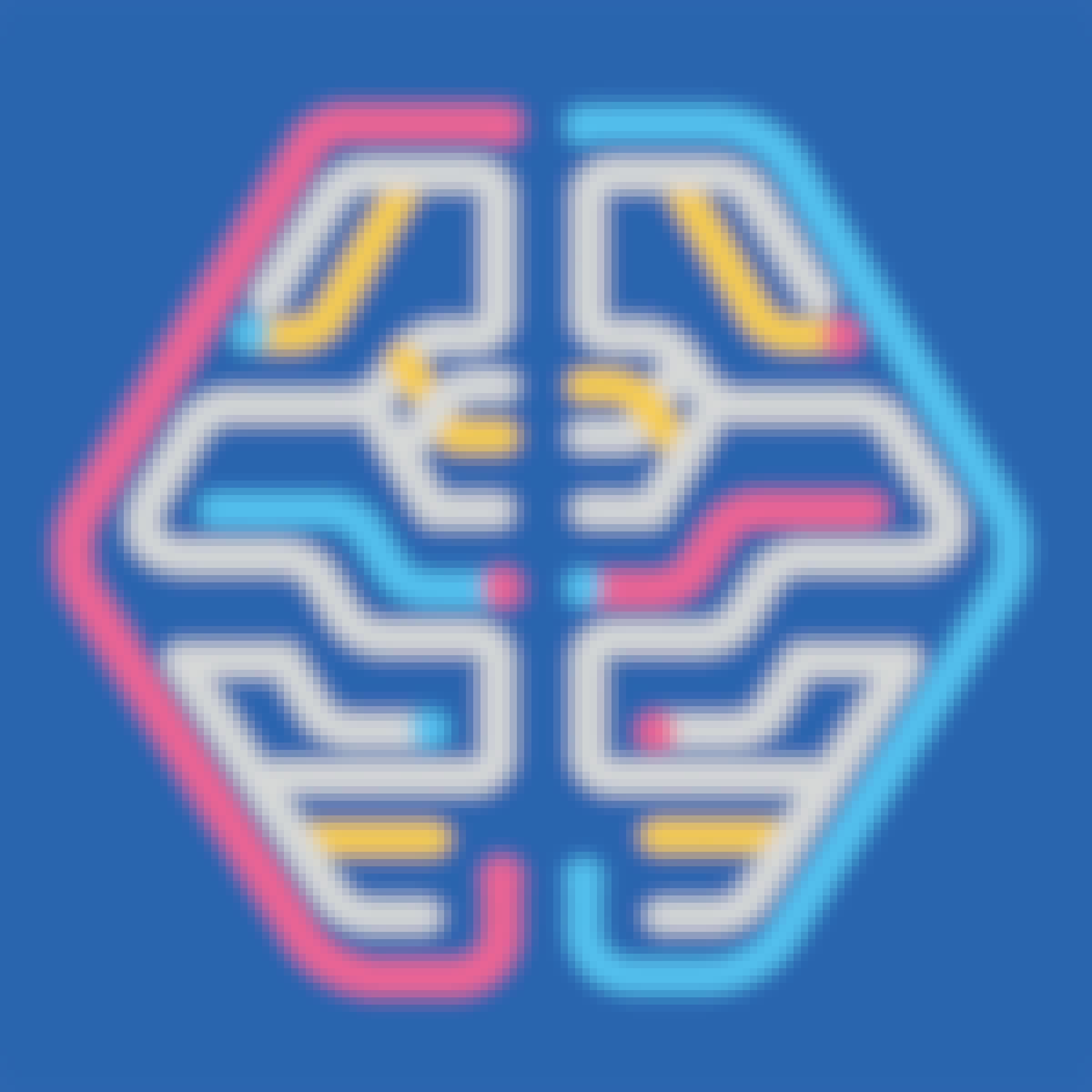- Browse
- Algorithmic Thinking
Results for "algorithmic thinking"
 Status: Free TrialFree TrialO
Status: Free TrialFree TrialOO.P. Jindal Global University
Skills you'll gain: Cultural Diversity, Immigration Law, International Relations, Strategic Partnership, Economics, Policy, and Social Studies, Higher Education, Social Sciences, World History, Public Safety and National Security, Business
4.4·Rating, 4.4 out of 5 stars9 reviewsBeginner · Course · 1 - 3 Months
 Status: Free TrialFree TrialD
Status: Free TrialFree TrialDDuke University
Skills you'll gain: Trustworthiness, Compassion, Ethical Standards And Conduct, Optimism, Positivity, Growth Mindedness, Resilience, Self-Awareness
4.7·Rating, 4.7 out of 5 stars20 reviewsBeginner · Course · 1 - 4 Weeks
 Status: Free TrialFree TrialE
Status: Free TrialFree TrialEEmory University
Skills you'll gain: Marketing Channel, Strategic Marketing, Business Marketing, Customer experience strategy (CX), Go To Market Strategy, Target Market, Customer Analysis, Market Research, Value Propositions, Market Opportunities, Case Studies, B2B Sales, Consumer Behaviour, Strategic Thinking, Innovation
4.5·Rating, 4.5 out of 5 stars53 reviewsIntermediate · Course · 1 - 4 Weeks
 Status: Free TrialFree Trial
Status: Free TrialFree TrialSkills you'll gain: Responsible AI, Generative AI, Data Ethics, Data Analysis, Google Cloud Platform, Analytical Skills, Professional Development, Data Presentation, Problem Solving, Communication Strategies
4.7·Rating, 4.7 out of 5 stars36 reviewsBeginner · Course · 1 - 4 Weeks
 Status: Free TrialFree TrialR
Status: Free TrialFree TrialRRice University
Skills you'll gain: Basic Electrical Systems, Electrical Engineering, electromagnetics, Physics, Engineering Analysis, Engineering Calculations, Mathematical Modeling, Problem Solving, Applied Mathematics, Advanced Mathematics, Electronic Components, Mathematical Theory & Analysis, Calculus, Differential Equations, Integral Calculus, Trigonometry, Derivatives
4.8·Rating, 4.8 out of 5 stars50 reviewsIntermediate · Course · 1 - 4 Weeks
 Status: Free TrialFree TrialU
Status: Free TrialFree TrialUUniversity of Michigan
Skills you'll gain: Nutritional Assessment, Nutrition and Diet, Social Determinants Of Health, Health Assessment, Environment, Sustainability Standards, Spreadsheet Software, Environment and Resource Management, Environmental Science, Risk Analysis, Critical Thinking and Problem Solving
4.5·Rating, 4.5 out of 5 stars25 reviewsIntermediate · Course · 1 - 4 Weeks
 Status: Free TrialFree TrialG
Status: Free TrialFree TrialGGoogle Cloud
Skills you'll gain: Tensorflow, Keras (Neural Network Library), Model Deployment, Google Cloud Platform, Data Pipelines, Jupyter, Deep Learning, Pandas (Python Package), Predictive Modeling, NumPy, Data Preprocessing
4.5·Rating, 4.5 out of 5 stars137 reviewsIntermediate · Course · 1 - 3 Months
 Status: Free TrialFree TrialF
Status: Free TrialFree TrialFFundação Instituto de Administração
Skills you'll gain: Workforce Management, People Analytics, Big Data, HR Tech, Workforce Planning, Data Mining, Data-Driven Decision-Making, Human Resource Strategy, Deep Learning, Human Resources Management and Planning, Digital Transformation, Human Resources, Ggplot2, Data Visualization Software, Plot (Graphics), Data Modeling, R Programming, Analytics, Data Science, Data Manipulation
4.4·Rating, 4.4 out of 5 stars80 reviewsBeginner · Specialization · 1 - 3 Months
 Status: Free TrialFree Trial
Status: Free TrialFree TrialSkills you'll gain: PyTorch (Machine Learning Library), Recurrent Neural Networks (RNNs), Model Evaluation, Convolutional Neural Networks, Natural Language Processing, Deep Learning, Generative Adversarial Networks (GANs), Classification Algorithms, Transfer Learning, Applied Machine Learning, Vision Transformer (ViT), Image Analysis, Machine Learning, Computer Vision, Artificial Neural Networks, Artificial Intelligence, Unsupervised Learning, Python Programming, Embeddings, Data Preprocessing
4.5·Rating, 4.5 out of 5 stars62 reviewsIntermediate · Specialization · 3 - 6 Months
 Status: Free TrialFree Trial
Status: Free TrialFree TrialSkills you'll gain: Model Deployment, Anomaly Detection, Image Analysis, Computer Vision, Matlab, Deep Learning, Applied Machine Learning, PyTorch (Machine Learning Library), Transfer Learning, Data Synthesis
4.9·Rating, 4.9 out of 5 stars15 reviewsBeginner · Course · 1 - 4 Weeks
 Status: Free TrialFree Trial
Status: Free TrialFree TrialSkills you'll gain: Data Ethics, Business Ethics, Ethical Standards And Conduct, Responsible AI, Artificial Intelligence, Information Privacy, Informed Consent, Personally Identifiable Information, Accountability, Generative AI Agents, Data Governance
4.7·Rating, 4.7 out of 5 stars7 reviewsBeginner · Course · 1 - 4 Weeks
 Status: PreviewPreview
Status: PreviewPreviewSkills you'll gain: Health Policy, Public Health, Systems Thinking, Health Promotion, Program Evaluation, Health Systems, Health Care Administration, Health Education, Health Equity, Epidemiology, Public Affairs, Community Health, Social Determinants Of Health, Advocacy, Media and Communications, Collaboration, Communication
Intermediate · Course · 1 - 4 Weeks
Searches related to algorithmic thinking
In summary, here are 10 of our most popular algorithmic thinking courses
- India-US Relations: Geopolitics, Culture, and Business: O.P. Jindal Global University
- Christian Virtues for Spiritual Growth: Duke University
- Marketing Channel Benefits: Emory University
- Put It All Together: Prepare for a Cloud Data Analyst Job: Google Cloud
- Physics 102 - AC Circuits and Maxwell's Equations: Rice University
- Healthy and Sustainable Foods: University of Michigan
- Intro to TensorFlow en Español: Google Cloud
- Análise de Dados para Workforce Management: Fundação Instituto de Administração
- PyTorch Ultimate 2024 - From Basics to Cutting-Edge: Packt
- Advanced Deep Learning Techniques for Computer Vision: MathWorks










